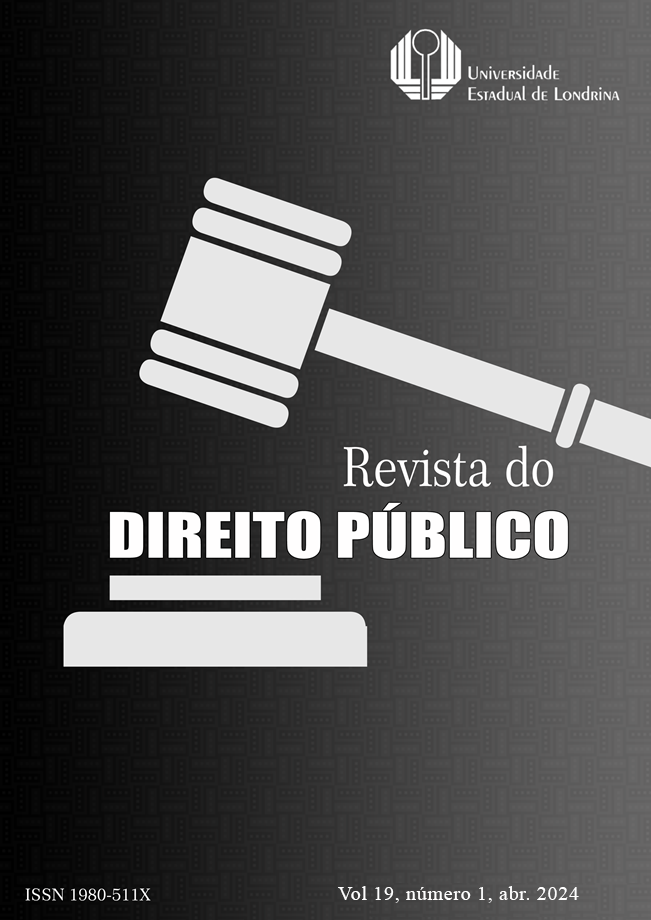DATA PROTECTION AND THE PRINCIPLE OF HUMAN DIGNITY:
AN UNDERSTANDING ABOUT INFORMATIONAL SELF-DETERMINATION
DOI:
https://doi.org/10.5433/1980-511X.2024.v19.n1.46952Keywords:
Dignity, Privacy, Informative self-determination, Fundamental rightAbstract
The text has as its object of investigation the data
protection, an Autonomous Fundamental Right, from the historical
evolution, both of the concept of human dignity, and of the concept
related to the right to privacy, which allows to verify the scientific
autonomy of the Law to Data Protection disconnected from the
civilist perspective dispensed with the Right to Privacy, a premise
from which we arrive at the definition of the concept of informative
self-determination and which allows us to sustain that the dignity
of the human person has a super positive and positive nature. In
this sense, a dialectical relationship between Natural Law and
Positive Law is assumed, oriented towards the realization of the
personalist perspective of dignity, which places the human person
at the center of the legal system, both in the scope of Domestic Law
and International Law, this, also a premise that allows sustaining the
benefits with the influence exerted by European Law on Brazilian
Law, both in the dogmatic and jurisprudential scope, evidenced
from the analysis of the content referring to the Direct Action of
Unconstitutionality 6389 of 2020 pending in the Supreme Court
Federal. To achieve the proposed objective, bibliographic research
will be used and, in writing, the deductive procedure. The present
study is justified because, from it, it may be possible to verify the
scientific autonomy of the Right to Data Protection disconnected
from the civilist perspective to reach the conceptual definition of
informative self-determination. The exposition of such factors will
reveal that human dignity has both a super positive and a positive
nature, thus confirming the possibility of a personalistic realization
of human dignity.
Downloads
References
ALEXY, Robert. Teoria dos direitos fundamentais. Trad. Virgilio Afonso da Silva. São Paulo: Malheiros, 2008.
ANDRADE, Oswald. Manifesto antropófago. Disponível em: <http://www.ufrgs.br>. Acesso em 06 de novembro 2020.
BODIN DE MORAES, Maria Celina. Apresentação do autor e da obra. In: RODOTÀ, Stefano. A vida na sociedade da vigilância: a privacidade hoje. Trad. Danilo Doneda e Luciana Cabral Doneda. BODIN DE MORAES, Maria Celina (Org). Rio de Janeiro: Renovar, 2008, p. 01-12.
CASTILHO, Ricardo. Direitos humanos. 6 ed. São Paulo: Saraiva, v. 30, 2018.
DONEDA, Danilo. Registro de sustentação oral no julgamento da ADI 6389, sobre a inconstitucionalidade do artigo 2º caput §§ 1º e 3º da MP 954/2020 . Civilística.com. Rio de Janeiro, a.9, n.1, 2020. Disponível em: http://civilistica.com/registro-dasustentaçao-oral-no-julgamento-da-adi-6389/>. Acesso em 05 de novembro de 2020.
HESSE, Konrad. A força normativa da constituição. Trad. Gilmar Ferreira Mendes. Porto Alegre: Safe, 1991.
____. Manual de derecho constitucional. Trad. Antonio López Pina. Madrid: Marcial Pons, 1996.
RODOTÀ, Stefano. A vida na sociedade da vigilância: a privacidade hoje. Trad. Danilo Doneda e Luciana Cabral Doneda. BODIN DE MORAES (Org). Rio de Janeiro: Renovar, 2008.
RODRIGUES JUNIOR, Otávio Luiz. Estatuto epistemológico do direito civil contemporâneo na tradição de Civi Law em face do neoconstitucionalismo e dos princípios. Meritum: Belo Horizonte - v. 5 - n. 2- p. 13-52-jul/dez.2010.
ROTHENBURG, Walter Claudius. Direitos fundamentais. São Paulo: Método, 2014.
Downloads
Published
How to Cite
Issue
Section
License
Copyright (c) 2024 Jamile Calissi, Eliana Franco Neme, Bruno Alberto Maia

This work is licensed under a Creative Commons Attribution-NonCommercial-NoDerivatives 4.0 International License.
Os autores cedem à Revista do Direito Público, direitos exclusivos de primeira publicação, com o trabalho simultaneamente licenciado sob a Licença Atribuição-NãoComercial-CompartilhaIgual 4.0 Internacional. Esta licença permite que terceiros façam download e compartilhem os trabalhos em qualquer meio ou formato, desde que atribuam o devido crédito de autoria, mas sem que possam alterá-los de nenhuma forma ou utilizá-los para fins comerciais. Se você remixar, transformar ou desenvolver o material, não poderá distribuir o material modificado.












